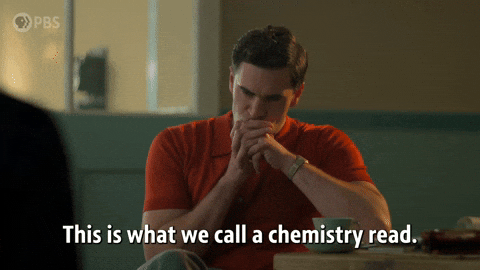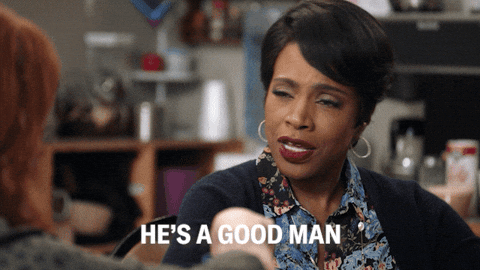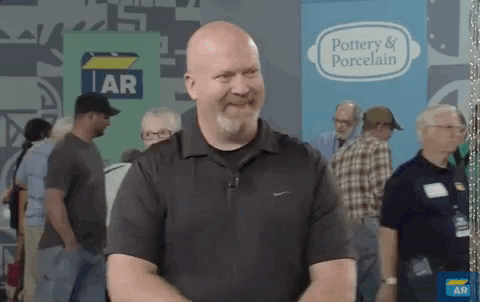Should I Hire a Professional Matchmaker?
Ever wondered what it’s really like behind the scenes of a professional matchmaking service? I recently sat down with Jill Dunn, a seasoned matchmaker with years of experience helping single men and women find long-term relationships.
Our conversation covered everything from dating app burnout to predictors of long-term relationship success. As a dating coach I specialize in getting your head on straight about dating, and setting you up with the right strategies and tactics to attract great matches and sustain healthy communication.
What I don't do is find the dates for you or provide direct feedback from those dates. That's why I started getting interested in matchmakers.
If you are looking for an alternative or addition to online dating sites for your dating strategy and you've considered hiring a personal matchmaker, read on—I think you'll have some of the same questions I did.
First, you'll see the questions I wanted to ask, then the crowd-sourced "frequently asked questions.".
What is your philosophy for bringing people together?
Jill’s matchmaking philosophy is more witchy than I thought it'd be: she believes people show up at the right time for the right reasons.
“I don’t force anything,” she said. “If someone feels compelled to work with me, I trust that timing. And I don’t convince or beg people to meet. If it’s right, it flows.” Jill reported this sentiment on my Master the Art of Love group coaching Zoom and you could hear a collective sigh of relief as if to say: "Ahhh, so I don't have to work so hard?" Correct.
What is your process of vetting and matching potential dates?
Jill emphasized a highly personalized approach. She conducts in-depth screenings for compatibility, covering things like lifestyle, geography, family values, and core values. Her matchmaking agency does background checks and creates or collects profiles for every new client.
If you're looking for a long-term partner, she’s already thinking ahead about the major compatibility points that lead to successful relationships. Want to know what I think truly makes two people compatible? Watch this free webinar I made for you.
How do you deal with ‘liabilities’ like health issues or family complications?
I like to call the things that could be dealbreakers "liabilities," but Jill thinks that's too negative. She reframes them as compatibility points. One client had a physical limitation after a stroke; another was a widow deeply connected to her late husband. Jill honors clients’ requests about what information to share with potential partners and uses those details to filter out people who wouldn’t be a good fit.
I enquired if she would be willing to ask potential matches if they were ok with the possibility of an STI before introducing them to anyone, and then proceed. She said she would. Obviously, some people don't share this info with their matchmakers, and they aren't obligated to do so, but for my clients, saving them the discomfort of the complete unknowns around that disclosure would be a major benefit of a matchmaking service.
What are the predictors of a successful relationship you’ve observed?
“Chemistry on the first date isn’t everything,” Jill warned. In fact, she said many people try to recreate dynamics from past relationships (even failed ones) instead of focusing on what really matters: shared goals, lifestyle alignment, and mutual attraction.
She encourages everyone to commit to at least a second date to better assess compatibility.
How have dating apps changed your work?
Jill said flat-out: “People are burned out.” Between online dating apps, online dating platforms, and countless lackluster dates, her prospective clients are fed up. That’s where a traditional matchmaker can make all the difference—removing the overwhelm and bringing focus, fun, and on-the-court learning back to the dating process.
I think it's always good to diversify your options and mix up the strategies if one gets stale.
What qualities do your most successful clients have in common?
Open-mindedness.
Jill stressed that her most successful singles are the ones willing to take her feedback seriously and see new perspectives. Those who cling to inflexible standards—like height, income, or a checklist-style perfect match—usually struggle more. “If everyone just listened to me,” she joked, “they’d all be in committed relationships.”
What are the early signs of compatibility that people often overlook?
The real indicators of a good match? Similar interests, how you spend your free time, and whether your life goals are aligned. If one person loves exploring art galleries and the other refuses to go into the city, Jill knows it's not a suitable match—no matter how attractive they are.
I also had to ask, are more traditionally "attractive" people easier to match? Her quick and confident answer was "absolutely not!"
Who’s a bad candidate to use a matchmaker?
The only real red flag for Jill? A closed mind.
If you’re going to say “no” to every potential match she finds, it’s probably not a good idea to invest in professional matchmaking services. Successful clients trust their matchmaker and show up ready to date on a deeper level.
Do you share contact information before the first date?
Nope. Jill coordinates the logistics herself. She sets the time and place and treats the first date like a blind date. That way, nobody ruins it with premature texting or awkward phone calls. “The first date is just a vibe check,” she explained. “You’re just seeing if you enjoy each other’s company.”
What does your post-date feedback process look like?
After each first date, Jill checks in with both parties and collects their honest feedback. Was the conversation easy? Did they feel comfortable? Any red flags?
Sometimes, she even helps clarify misunderstandings—like when one person thinks the other wasn’t interested based on body language. “It’s like high school,” I joked to Jill, “You’re the best-friend go-between.”
Do your clients tend to find long-term relationships?
“Almost always,” Jill said confidently. While she can’t control every variable (like weather or someone refusing a good match), most of her clients end up exploring a new relationship before they finish working with her. That’s a pretty incredible success rate.
Do you work with people of all backgrounds?
Yes. Jill works with a diverse array of clients across ages, races, and orientations. “If I feel like I can effectively serve someone, I’ll work with them,” she said.
And if she can’t? She’ll refer them to another matchmaking company or a personal matchmaker in her network.
Are there any “deal breakers” you wish people would get over?
“Yes! The sixes,” she laughed. “Six feet tall, six figures, six-pack abs.” Jill has seen too many women dismiss great men who are kind, smart, and emotionally available simply because they’re not 6 feet.
She encourages clients to go beyond superficial standards and focus on the stuff that really leads to a meaningful relationship.
Do you ever recruit men who haven’t hired you?
Yes. Jill uses recruiters, ads, and referrals to find quality individuals outside of her existing client base. This allows her to increase the dating pool and create better matches for her female clients, who make up about 70% of her business.
Does spending money on matchmaking make a difference?
According to Jill, yes. “People who invest financially tend to be serious,” she explained. They’re done wasting precious time on casual dates or online daters who aren’t clear on what they want. Professional matchmaking services provide structure, accountability, and a great chance at finding love.
If you’re curious about Jill’s services, you can reach her at hello@jillinit.com or visit jillinit.com.
Frequently Asked Questions About Professional Matchmaking
1. How much does professional matchmaking typically cost?
Professional matchmaking services can vary widely in cost depending on the matchmaker’s experience, location, and the level of customization involved. Fees often range from $2,000 to over $50,000 for high-end, elite matchmakers. This reflects the personalized attention, background checks, and extensive vetting process that go into creating quality matches.
Many clients view it as a meaningful investment in their long-term relationship goals. However, I would caution, if you can't comfortably afford it, and the risk that it may not work, don't spend the money!
2. How is matchmaking different from using a dating app?
Dating apps rely heavily on algorithms and user-curated profiles, while professional matchmakers use intuition, personal interviews, and deep vetting to find compatible partners. With a matchmaker, you're not swiping—you're trusting a professional to present thoughtfully selected potential matches based on shared values, lifestyle compatibility, and relationship readiness.
3. Can professional matchmaking work for someone who’s hardly dated before?
Yes. Matchmaking can be a great option for people without a lot of experience, especially if you want guidance and support from someone experienced in the dating process. A good matchmaker can help build confidence, teach dating etiquette, and walk you through each stage—right down to how to make a great first impression and how to pull the best learnings out of a first date.
4. What if I don’t like the matches my matchmaker sends me?
A reputable matchmaker uses feedback to improve future matches. If you're honest and constructive about why a date wasn’t a good fit—whether it’s a personality mismatch, chemistry, or lifestyle difference—your matchmaker uses that insight to refine your profile and improve the matchmaking moving forward.
Ongoing communication is key to finding the right person. Remember, you are also "dating" your matchmaker, so ongoing communication is key!
5. Is professional matchmaking only for people who can’t find dates on their own?
Not at all. Many successful singles turn to matchmaking because they’re busy, tired of the dating apps, or looking for a more direct path to a committed relationship.
It’s often a smart choice for people who want to maximize their time, avoid casual dates, and meet high-quality individuals who are serious about finding love.
Love,








